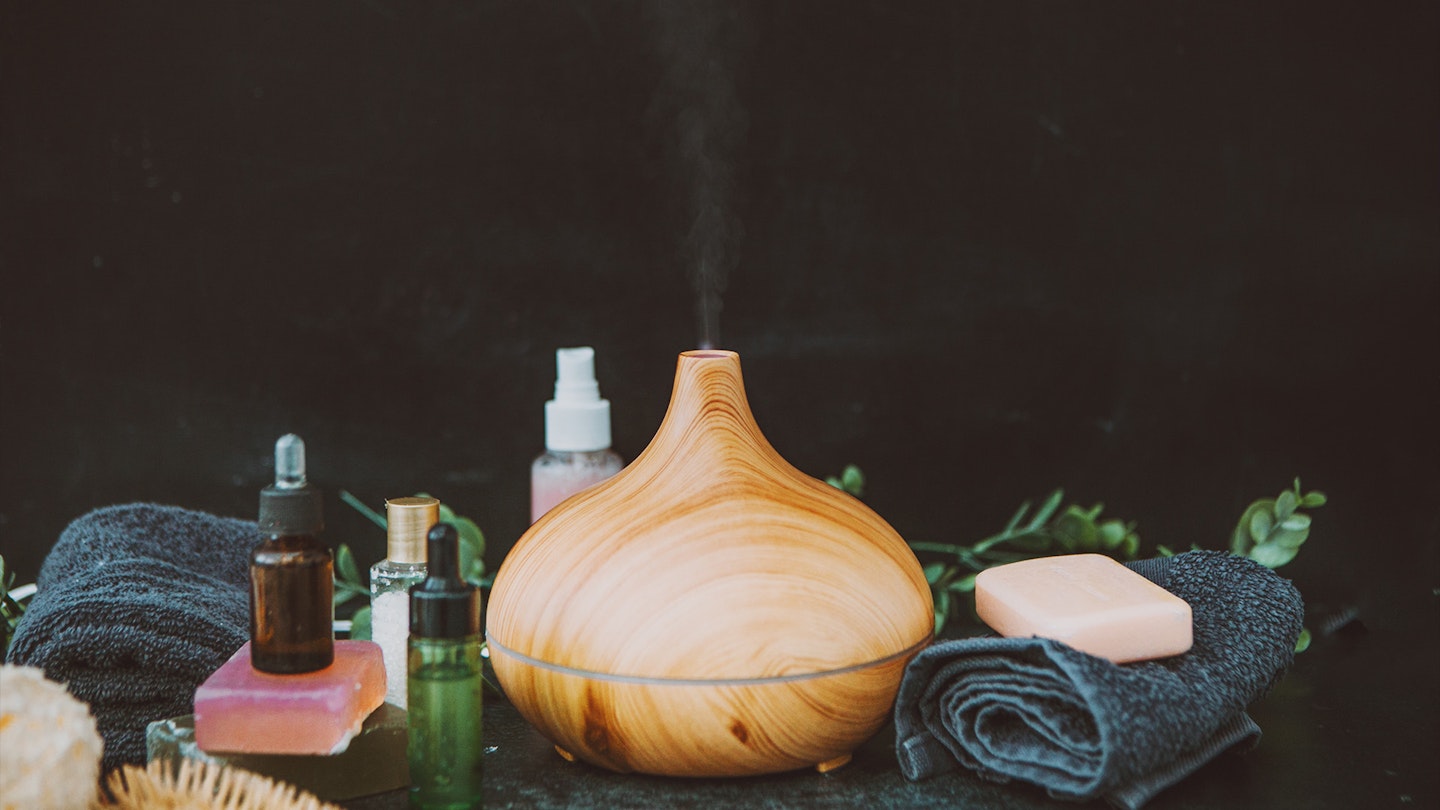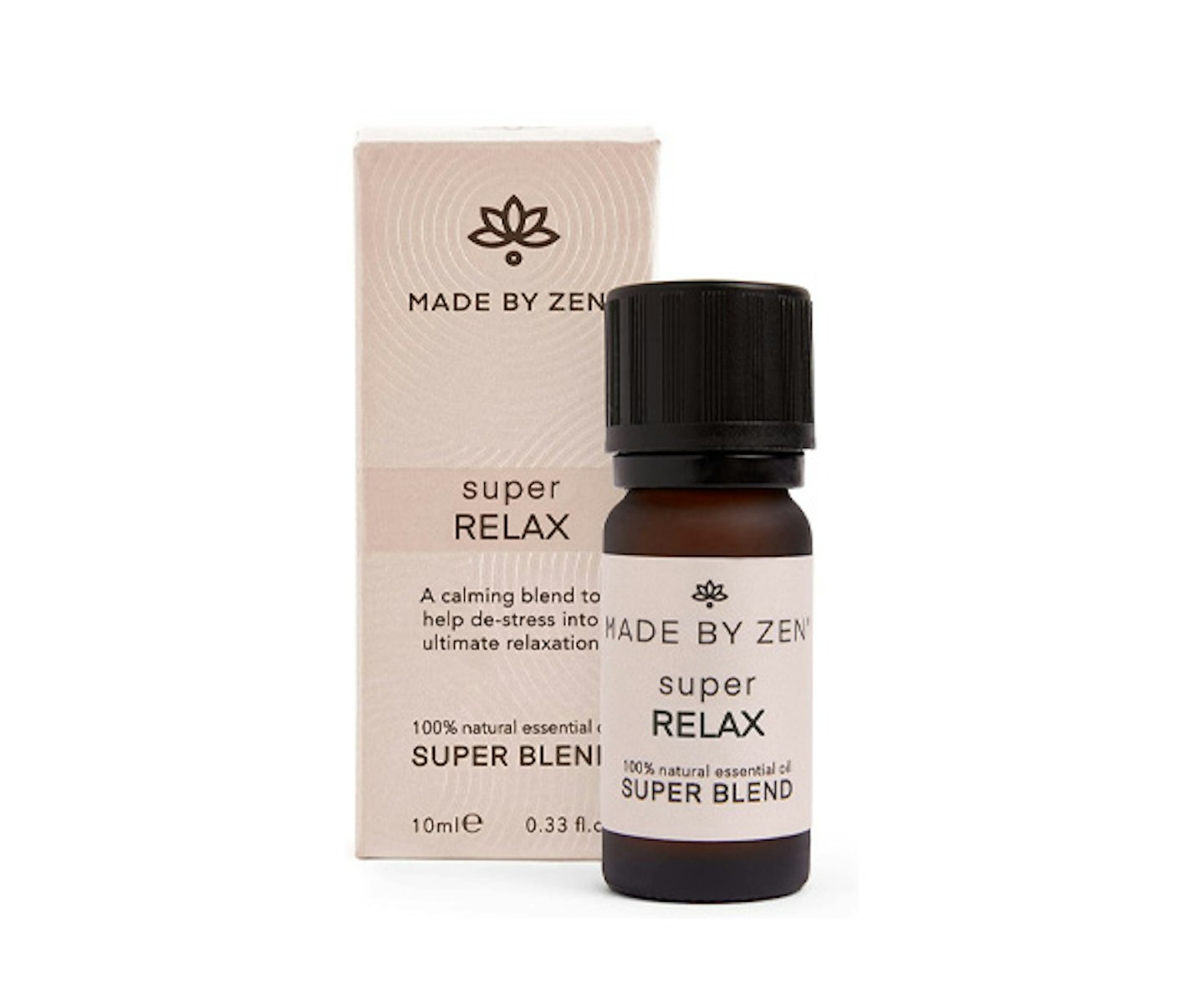Aromatherapy has been used to improve psychological and physical wellbeing for centuries. Whether it has been to improve sleep, create a relaxing environment, or relieve pain - essential oils do far more than smell beautiful. Scientifically speaking, when you inhale a fragrance, the scent molecules found in essential oils traverse from the olfactory nerves directly to the brain and especially affect the amygdala - the emotional centre of the brain. That is why aromatherapy is an excellent modality for your mental health. If you struggle with an overactive mind, here are the best essential oils for anxiety that can bring you some comfort.
Aromatherapy works through sense of smell and can be found in all sorts of products. You can find pillow sprays with calming ingredients that help you fall asleep, incense, body oils, floral waters, bath salts, inhalers, and more.
What is aromatherapy?
So now you know how aromatherapy affects the brain - here is what aromatherapy actually means. This healing modality uses essential oils that are created from plant extracts that come from various parts of a plant, such as the flowers, bark, leaves, or fruit. To produce essential oils, these components are steamed or pressed to produce a fragranced oil.
In aromatherapy, these oils do more than just smell pleasant. They also have many medicinal properties and are used for therapeutic benefit. According to Aromatherapy Associates, "aromatherapy is the power of aroma through essential oils that improve your wellbeing. This therapy has been used in ancient cultures for thousands of years. The term aromatherapy was named by a French perfumer and chemist, René-Maurice Gattefossé, in 1937."
Aromatherapy is now thought of as both an art and a science. In recent years, aromatherapy has gained more recognition in the fields of science and medicine to help with anxiety, wellbeing, and general health.
How to use essential oils
As essential oils are so strong, be mindful of how you’re using them. You only need small amounts, such as a few drops. Undiluted oils are too strong to use straight, so you will need to dilute them, usually with carrier oils or creams. If you purchase a roller or the product states that you can use it directly on the skin, then it has been prepared for direct use. Here is how you can use essential oils:
On the skin: Apply two drops on sensory points such as your wrists, neck, behind the ears, or temples. Massage into the skin and inhale with a few deep breaths. The diagram below indicates the sensory points where you can apply the oil for maximum therapeutic benefits. If you would like to use it at night, apply it at least 30 minutes before bed for maximum impact.
In a diffuser: One full pipette or three drops into a diffuser
In a bath: Three to five full pipettes into a warm bath
Best essential oils for anxiety
So with that in mind, let's take a look at the best essential oils and blends for anxiety to help calm the mind and restore balance.
Best essential oils for anxiety discovery set
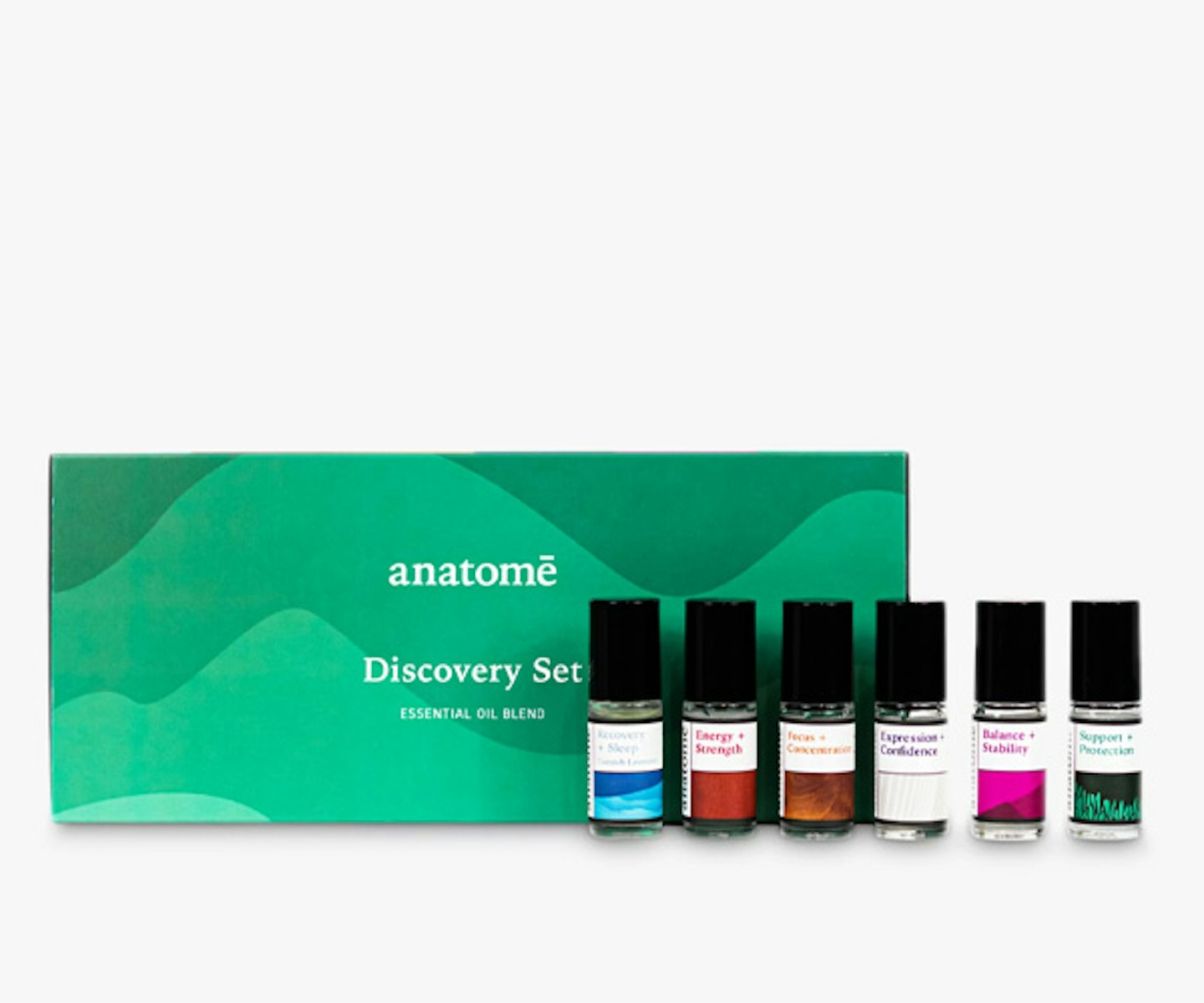
www.johnlewis.com
If you are new to the world of aromatherapy or are looking for a thoughtful gift, this discovery set from anatomē is a lovely place to start. The six 5ml essential oils rollers support your wellbeing through the day and night with the power of the botanicals.
What it includes: Sleep + Recovery, Energy + Strength, Balance + Stability, Expression + Confidence, Focus + Concentration, and Support + Protection.
Tried and tested by Ellen Kinsey, Commercial Content Writer for Spirit & Destiny: "This lovely discovery doubles as a natural perfume. I keep this by my desk and choose what scent I want to apply depending on the day and how I am feeling. Plus, they are excellent for travel as they can be brought in your carry-on bag."
Best roll-on essential oil for anxiety
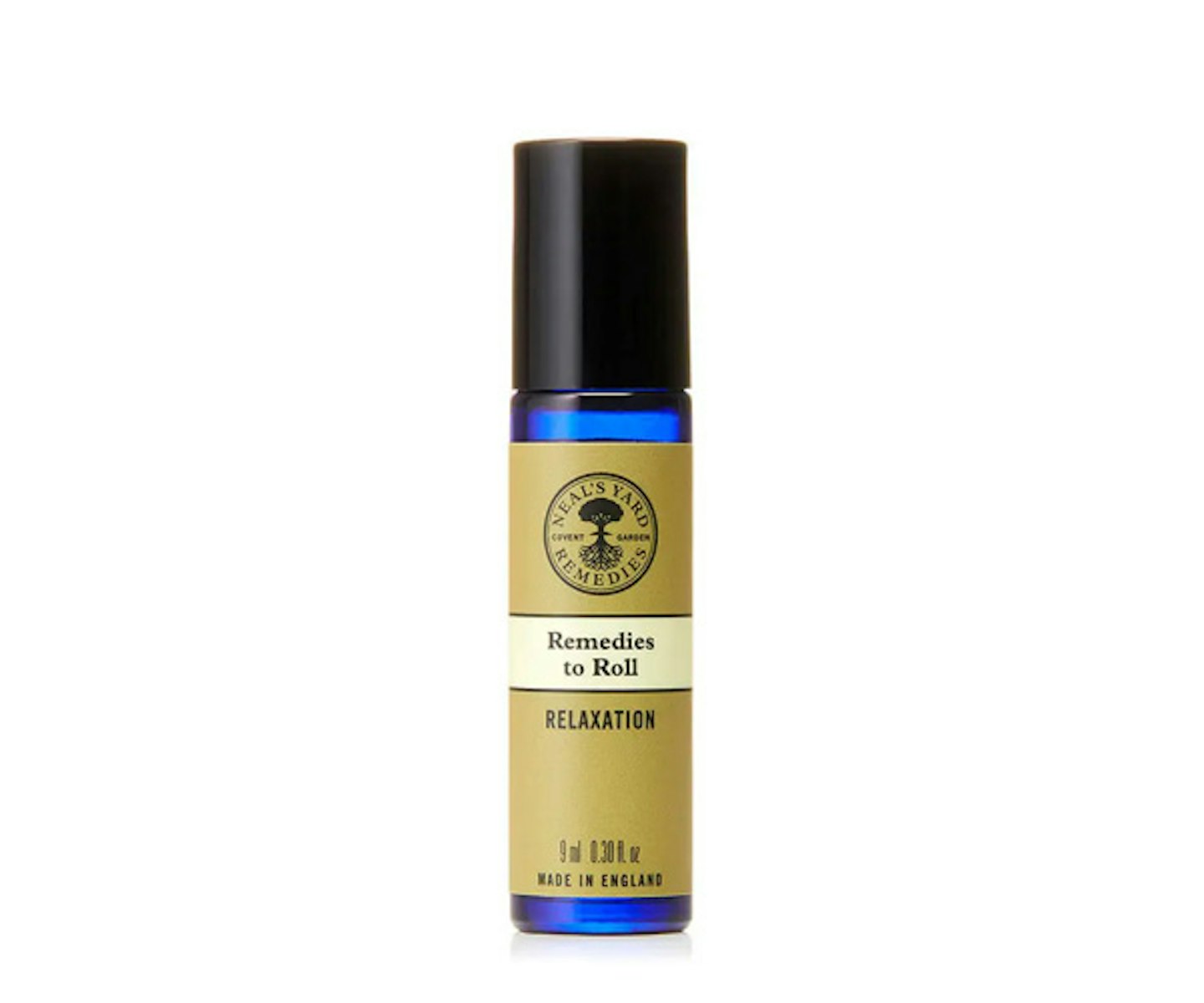
www.lookfantastic.com
If you are looking for an aromatherapy solution on the go, this roller-on treatment is made with an uplifting blend of Lavender, Bergamot, and Frankincense. Keep it in your bag or on your desk, or use it on the go.
Review: "I love these and have quite a few to my collection now! I use this one or the Nighttime at night and then I have some I use in the daytime or for Yoga. They all smell lovely and are very relaxing. Great service from LF only have to wait a few days for delivery."
Best essential oil for anxiety gift set
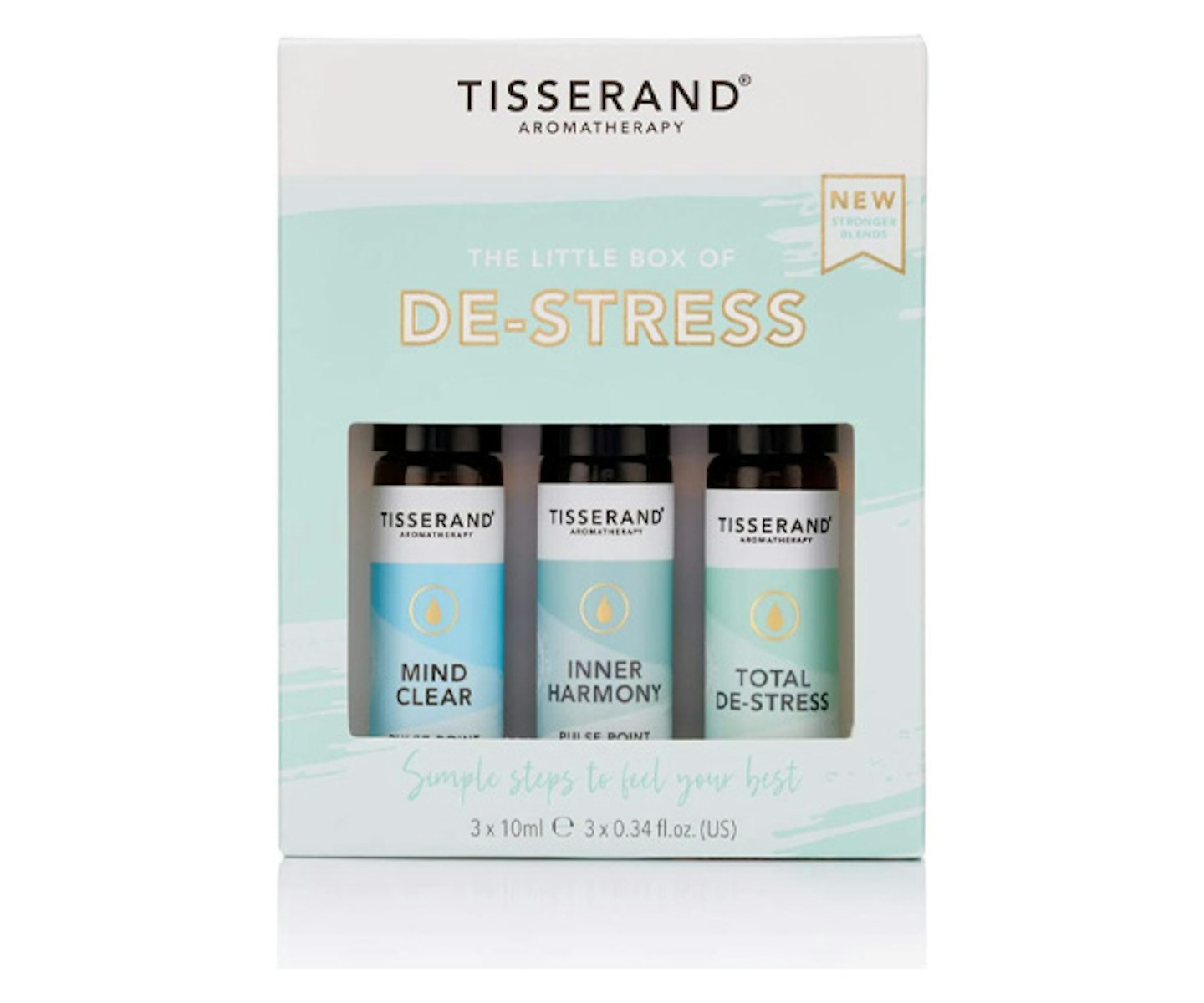
A lovely gift set for restoring balance, this little de-stress aromatherapy box contains three Tisserand pulse point roller balls containing calming essential oils such as Peppermint, Lavender, Lemon, Frankincense, Geranium, Orange, and Nutmeg.
What it includes: Mind clear: A blend of Peppermint, Lavender & Lemon, Inner Harmony: A blend of Frankincense & Geranium, and Total De-stress: A blend of Geranium, Orange & Nutmeg.
Review: "The de-stress one, whether it's the rolling on pulse points or the scent or the absorption of oils really helps me with my anxiety especially; I often find I feel better not too long after and then think 'oh yeah, I used my rollerball'. The happy one is nice too. They smell lovely, and I obviously get plenty of benefit from them because they run out, and I then want more because I can't regulate my emotions and anxiety as effectively without them."
Best essential oil blend for a diffuser
This Super Relax blend contains a blend of Bergamot, Ho wood, Lavender, Clary Sage, Ylang Ylang, and Cardamom to bring tranquillity and relieve tension.
Best orange essential oil for anxiety
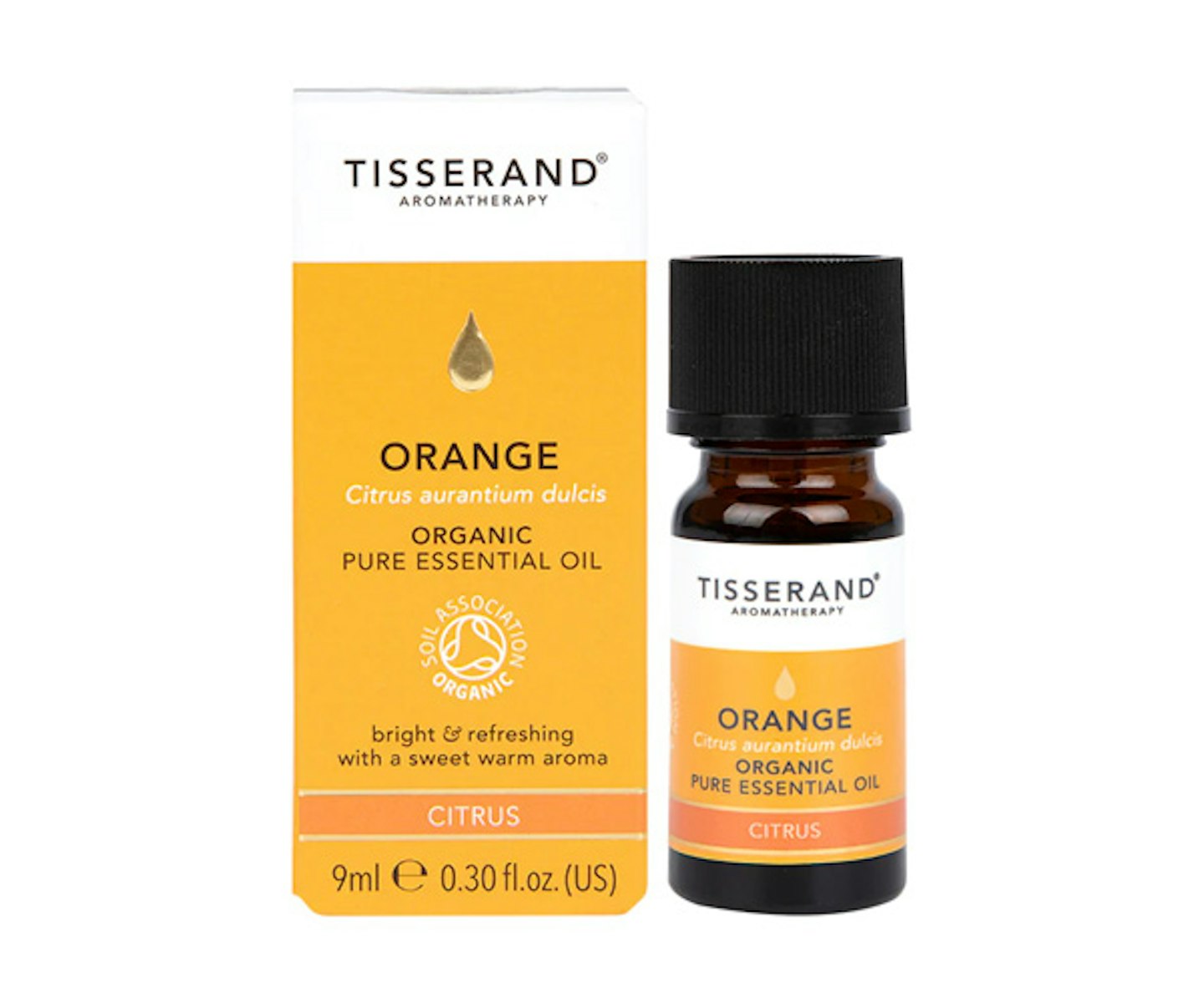
www.hollandandbarrett.com
Orange essential oils can be used to uplift your mood and reduce stress, adding a fresh aroma to a room. Orange is also a popular digestive tonic that can be massaged onto the skin with a carrier oil to help improve digestive function, particularly after indulging in high-fat foods.
Review: "The scent is light, unobtrusive- requires double the suggested amount to get any fragrance."
Best Vetiver essential oil for anxiety
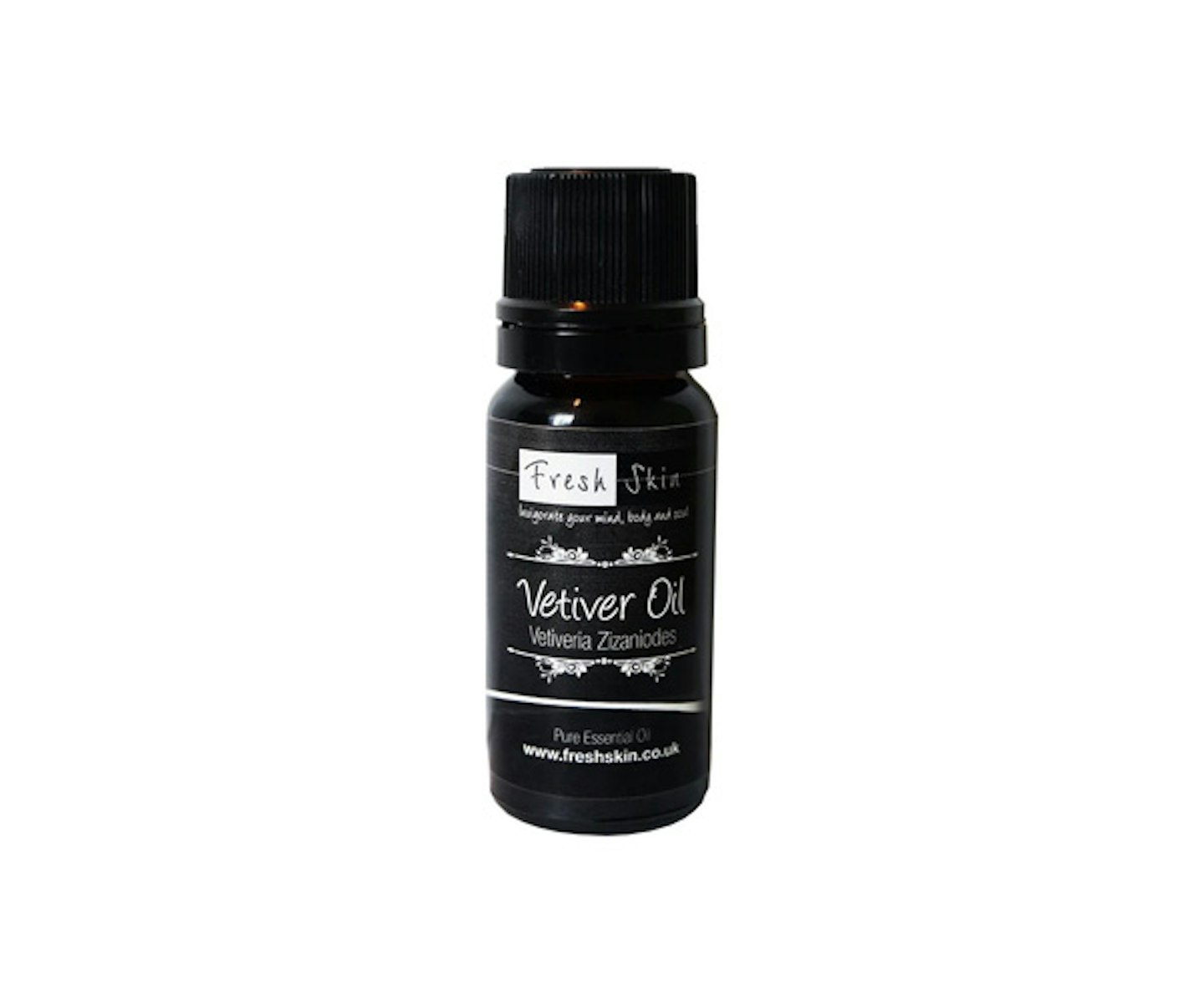
www.etsy.com
Vetiver essential oil lies in the thick white root systems of vetiver grass and encourages feelings of deep relaxation and comfort. Vetiver oil is well-known for its grounding and calming effects when in turbulent times.
Review: "A good quality lovely vetiver oil. Very soothing and relaxing."
Best Chamomile essential oil for anxiety
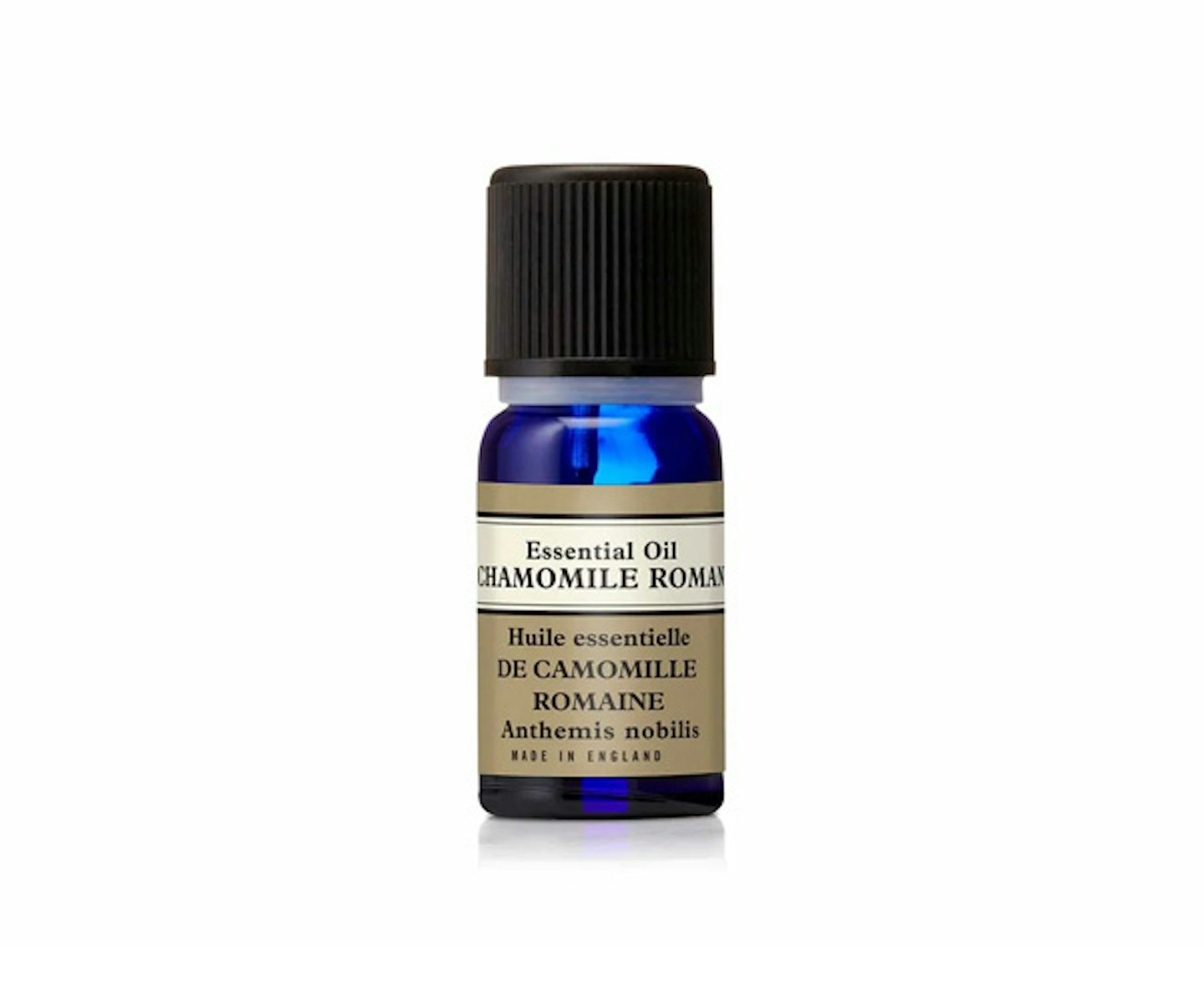
www.nealsyardremedies.com
Just like chamomile tea, this essential oil is light and earthy and distilled from the chamomile flowers and leaves. This naturally calming essence balances your emotions and helps to ease stress.
Review: "I love Chamomile Roman essential oil. I use it when I blend my shampoo, shower gel, ointment, and body cream and in my diffuser. It has a calming effect and helps to repair the skin."
Best Somali Frankincense essential oil for anxiety
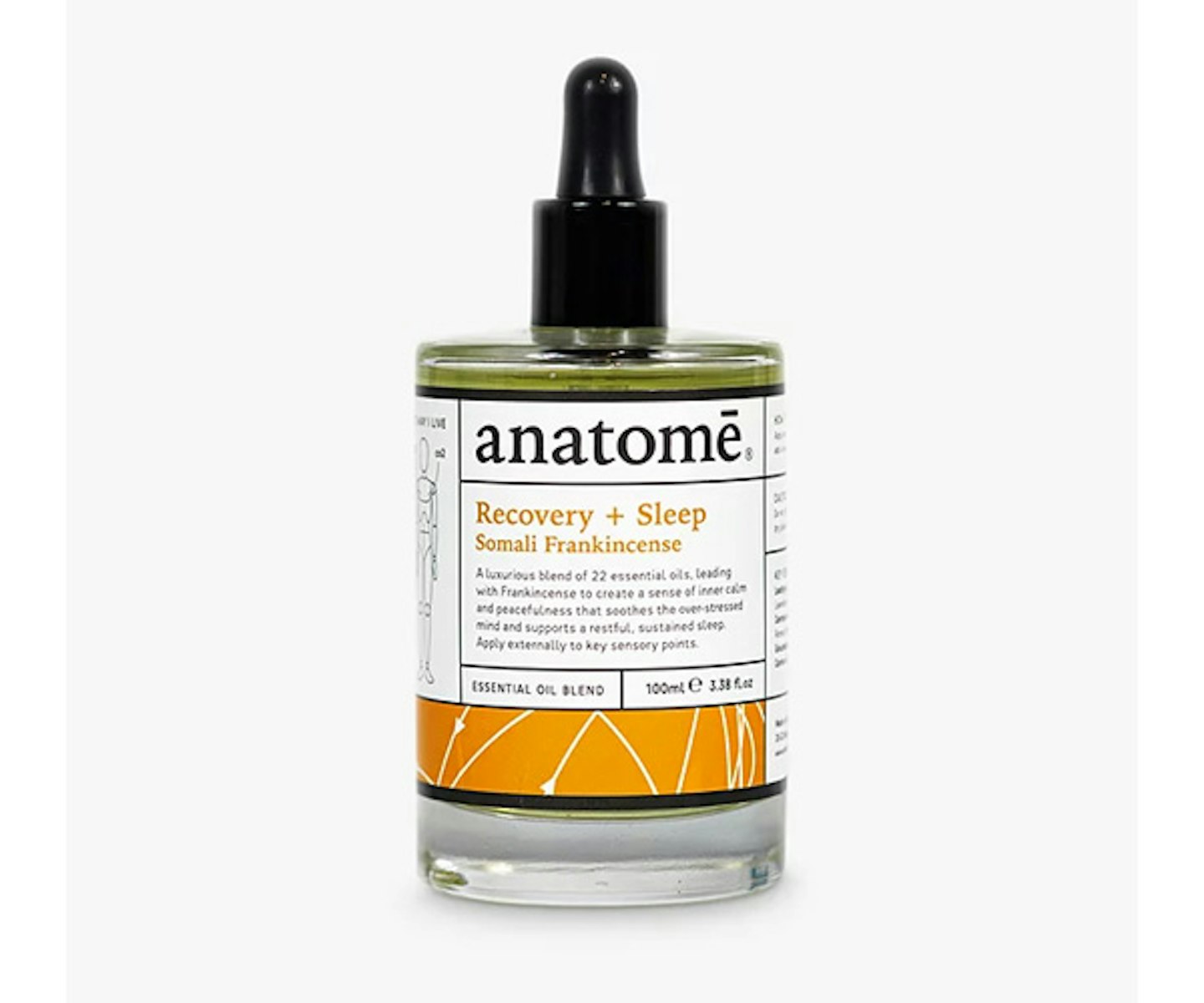
www.johnlewis.com
If you have trouble falling asleep due to an anxious mind, this blend of 22 essential oils will help to put your mind at ease at bedtime. The key ingredient in the formula is Somali Frankincense, which is rich in terpenes and can help reduce cortisol levels to help you fall asleep. It comes in 30ml or 100ml.
Best Bergamot essential oil for anxiety
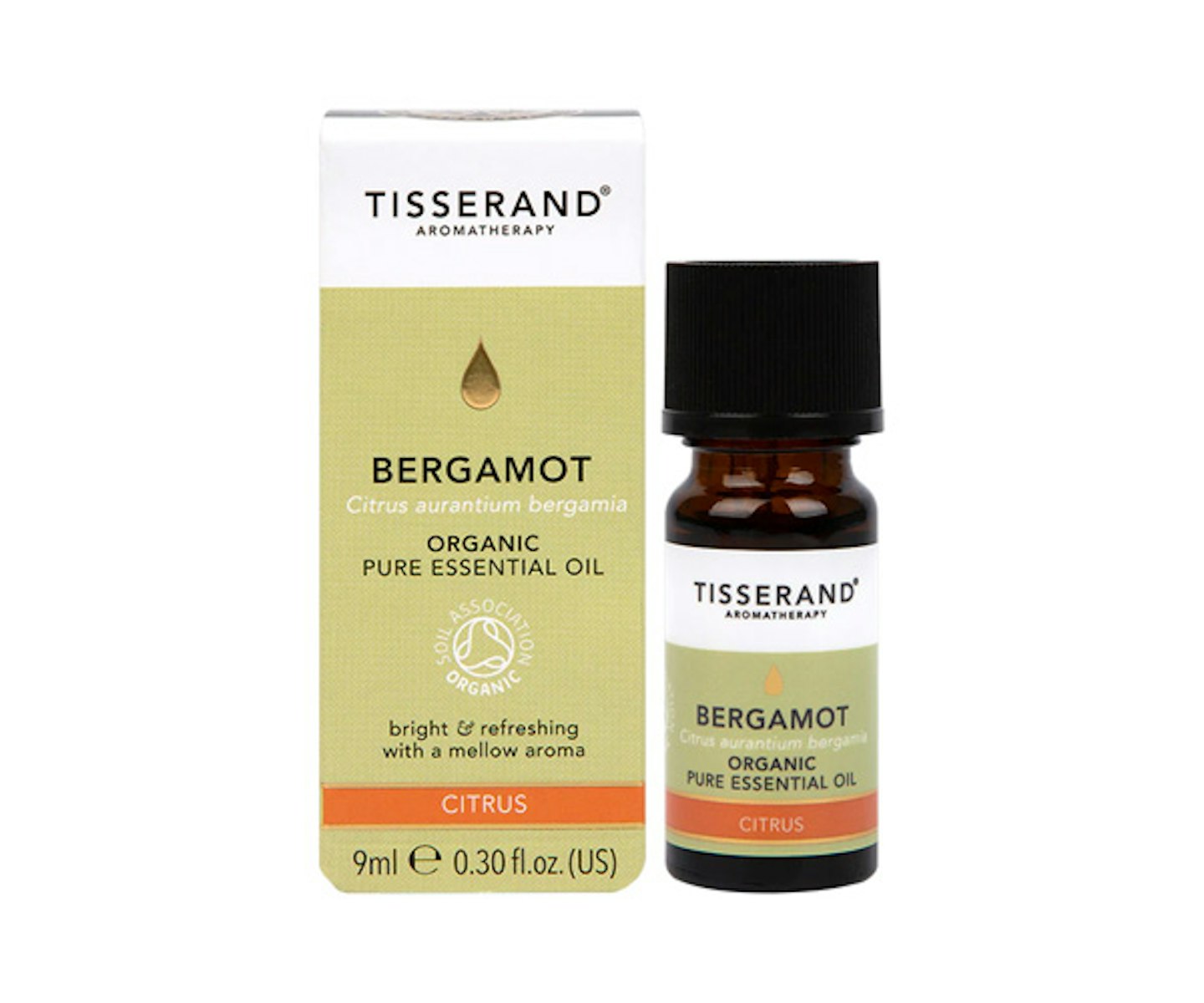
www.hollandandbarrett.com
Bergamot is a versatile oil that has a refreshing and strong citrus fragrance. In Ayurvedic medicine, bergamot oil has been used to soothe acne, skin rashes, sores, and sore throats, as well as bladder infections. It is also known for its uplifting qualities. Known as 'Natures Prozac' it is one of the most popular aromatherapy oils for easing anxiety and physical and mental agitation.
Review: "Citrus oils are always cheap (or cheap as it gets when talking about real-deal essential oils). Go for a good brand like Tisserand; it's well worth it."
Best rose essential oil for anxiety
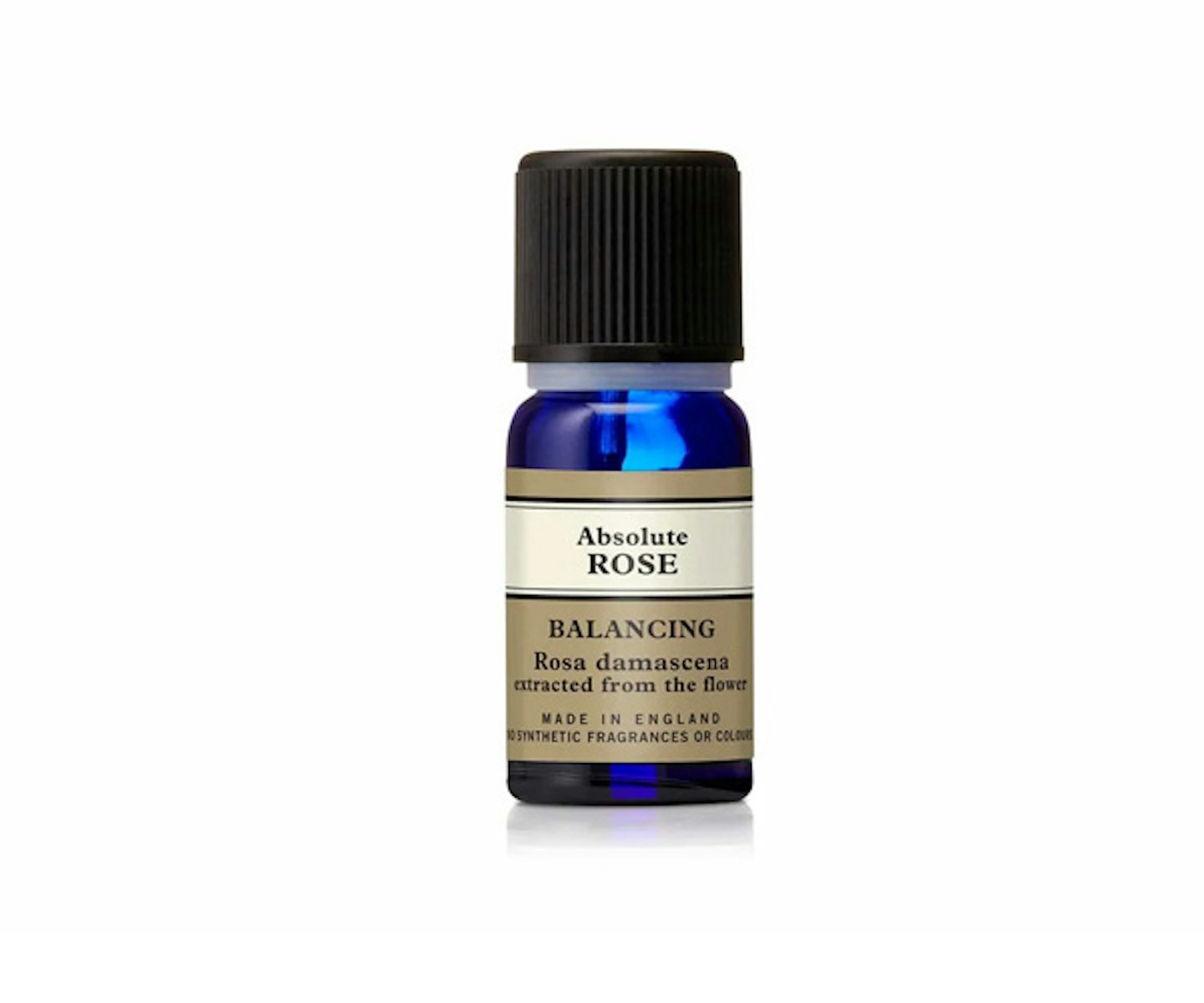
www.nealsyardremedies.com
This rose essential oil has a sweet, floral fragrance and is extracted from Turkish damask roses that are soothing, sensual, and nourishes your skin. Rose is great for balancing your emotions and mood during unsettling times.
Review: "I used the oil to make up a relaxing bath soak with Epsom salts, linden flowers and lavender."
Best lavender essential oil for anxiety
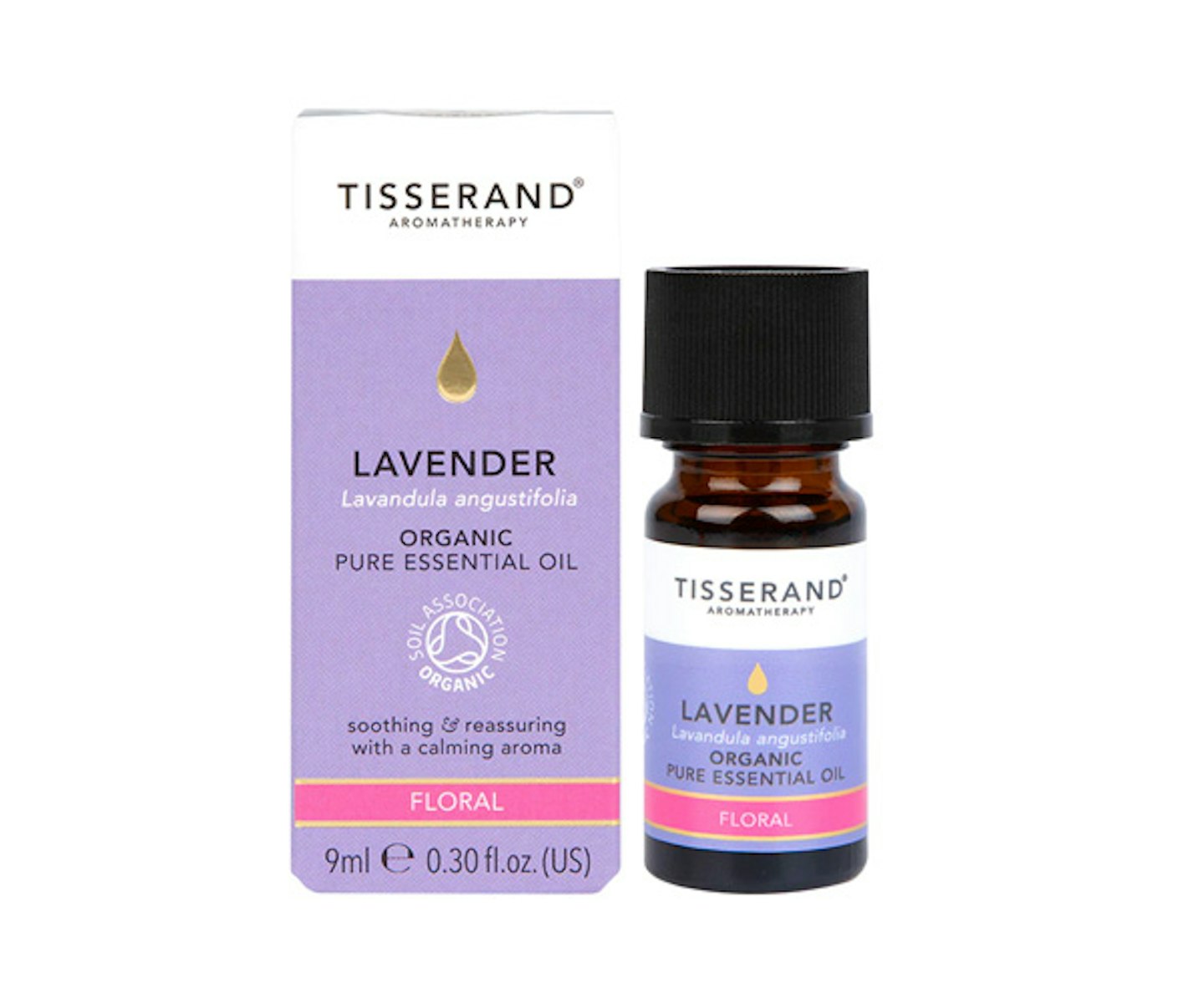
www.hollandandbarrett.com
Lavender is perhaps most associated with sleep however its soothing properties help calm the mind, improve relaxation and, of course, promote a good night’s sleep.
Review: "I use a few drops in my bath and also in my diffuser. The scent lasts and really relaxes and calms me."
Best uplifting essential oil roll-on for anxiety

www.hollandandbarrett.com
If you are looking for a handy all-rounder, then this Total De-Stress Roller from Tisserand contains soothing patchouli oil, uplifting and rebalancing organic orange oil and soft, ethically harvested rose oil to help restore calm.
Review: "Was slightly dubious given the price is much lower than other oils. But the smell is amazing, and it's lasting ages."
Best gift for anxiety sufferers
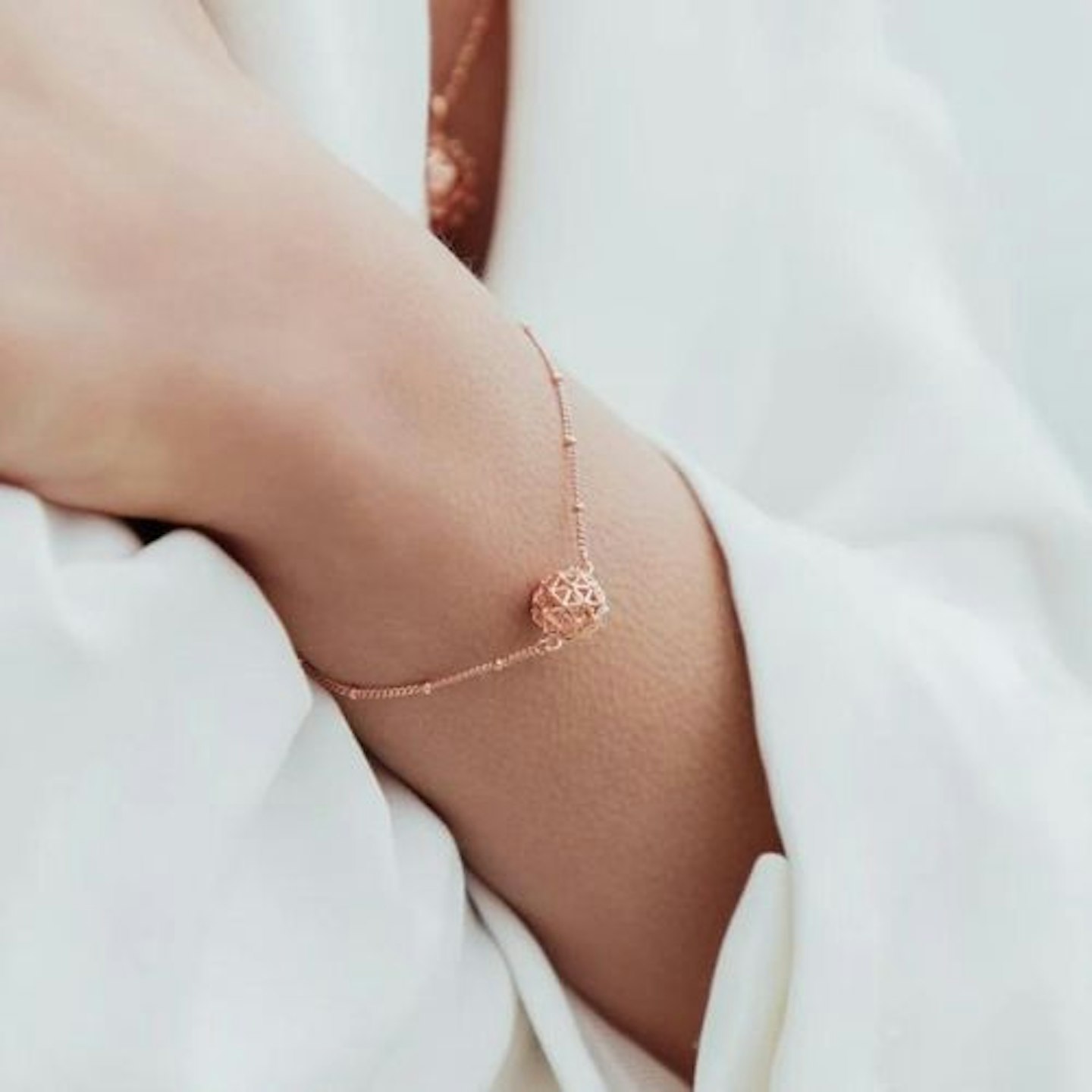 Oyl'e
Oyl'e www.oylelondon.com
This beautiful elegant bracelet is a stunning piece of jewellery. The pendant is plated in 18k Gold. The pendant opens to hold a wool bead, ready to diffuse your essential oil. Simply put 1-2 drops in your pendant, and wait for the scent to set in. This is the perfect gift for any aromatherapy fan. The oils are 100 per cent pure and natural.
Spirit & Destiny writer, Hannah James said: "This is a breathtaking bracelet. It arrives in a wonderful box which would make it a fabulous gift. I love that you can choose which sent you to wish to put in. The aromatherapy oils are really strong and a few drops will last all day. I found the whole process relaxing. When I feel stressed just putting my wrist to my nose is a great way to remind myself to take a bed breathe and exhale any negativity."
What is anxiety?
Although this may seem like a straightforward question, anxiety is not the same thing as stress. Stress is how we react when we feel under pressure or threatened, and it comes and goes. We experience stress from external situations such as a stressful project at work or financial issues. However, anxiety is a feeling that lingers and can be triggered without being able to identify why you feel it.
The nervous system produces your fight-or-flight response, which is designed to help you defend yourself or flee danger. So when you are under stress, threatened, or anxious, this system kicks into action, and physical symptoms can appear, such as headaches, nausea, shortness of breath, shakiness, or digestive issues.
If we face situations associated with chronic stress, we can experience emotional dysregulation, which can lead to feelings of overwhelm, anger, irritation, or difficulties controlling impulsive behaviours.
A study found that the overall number of people reporting mental health issues has increased in the last 30 years. According to Mind.org, this study showed that the number of people with common mental health problems went up by 20 per cent between 1993 to 2014 in both men and women.
According to the Adult PsychiatricMorbidity Survey, women in the UK were more likely than men to have reported common mental health symptoms, and one in five women, or 19 per cent, had reported CMD symptoms, compared with one in eight men (12 per cent).
However, it's not all doom and gloom. Mental health statistics are on the rise due to a progressive open dialogue about mental health, and now in the UK, individuals are starting to feel more comfortable sharing their feelings and concerns, whether it be in their workplace or personal life.
Does aromatherapy help with anxiety?
A 2014 study published in the journal Biomedical Research International, shows that a four-week aromatherapy program for older persons with chronic pain was effective in reducing levels of depression, anxiety, and stress.
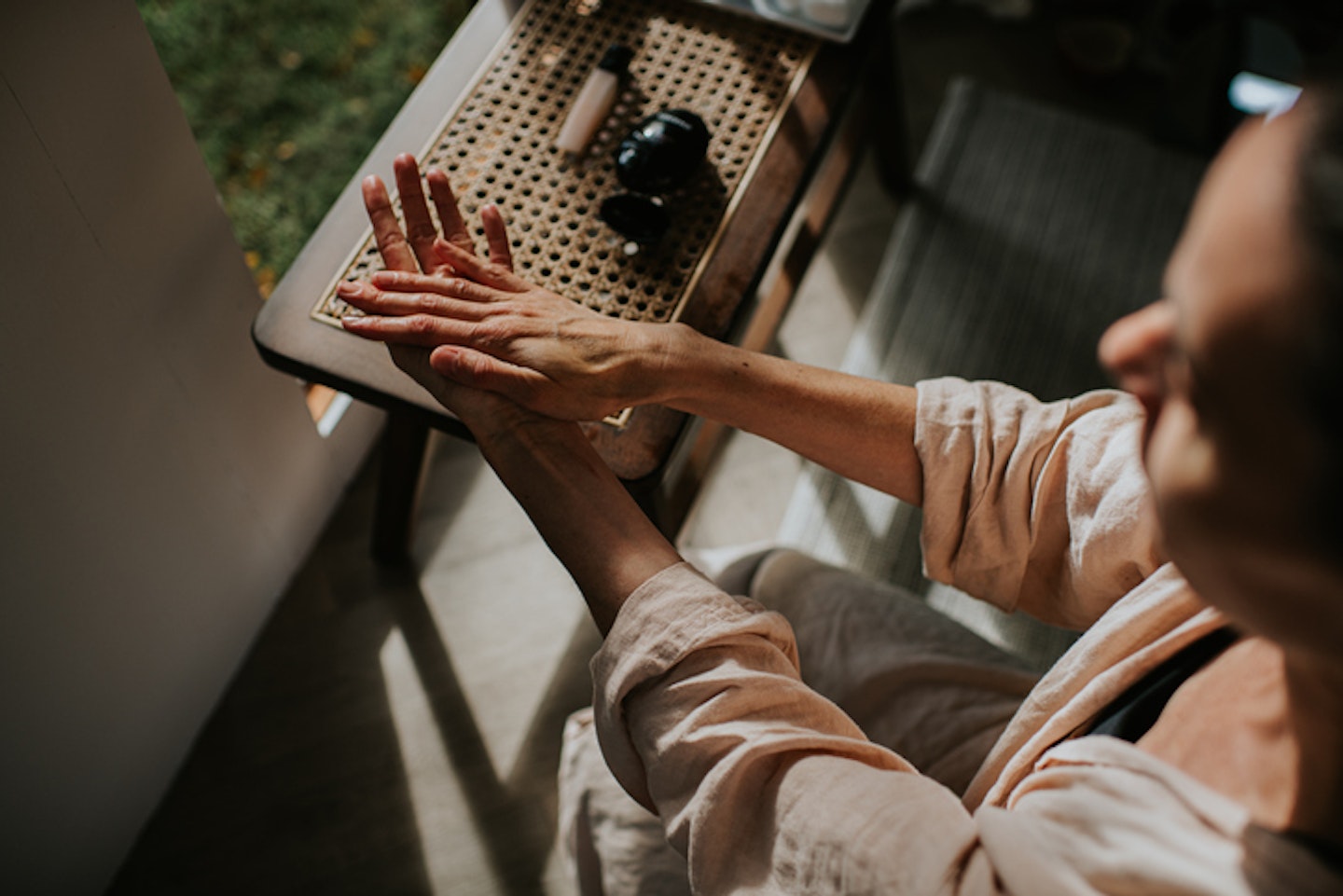
If you or anyone you know are exercising any anxiety symptoms, reach out and talk to someone
Whether it’s a friend or a healthcare professional, hearing your thoughts out loud can be very helpful and comforting. There should be no shame in seeking help.
If you are looking for some guidance or would like to refer a family member or friend to a professional, then Mind's helplines provide information and support by phone and email.
Local Minds offer face-to-face services across England and Wales. These services include talking therapies, peer support, and advocacy.
Or reach out to Side by Side, a supportive online community for anyone experiencing mental health struggles.
